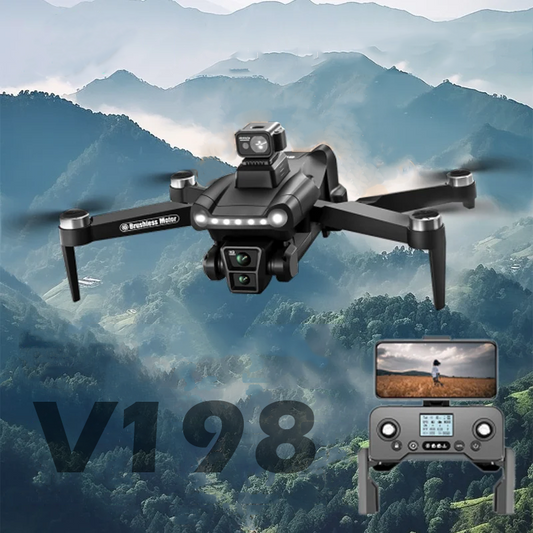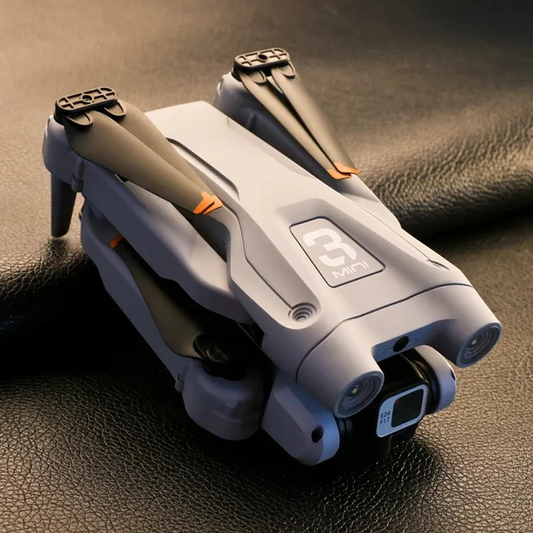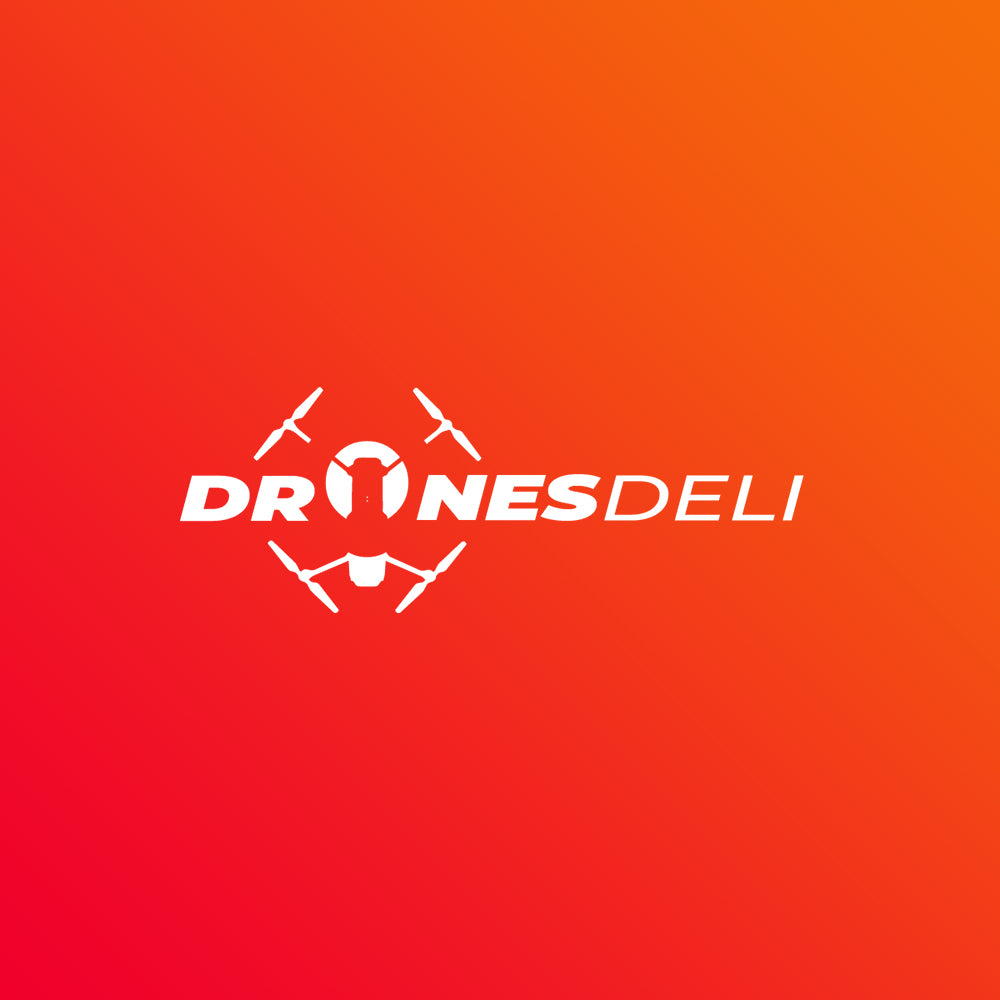Agricultural Drones Improving Efficiency in Modern Farming

Understanding Agricultural Drones
Agricultural drones, also known as UAVs (Unmanned Aerial Vehicles), are equipped with advanced sensors and cameras that capture detailed aerial imagery and data. These drones can perform various tasks, from monitoring crop health to mapping fields and applying treatments. The integration of drone technology in agriculture has led to more efficient and precise farming practices, providing farmers with valuable insights and improving overall productivity.
The Technology Behind Agricultural Drones

Modern agricultural drones are equipped with a range of technologies that enhance their capabilities. Key components include:
- High-Resolution Cameras
Agricultural drones are often equipped with high-resolution cameras that capture detailed images and videos of crops and fields. These cameras can provide farmers with clear, actionable insights into crop health, growth patterns, and potential issues.
- Multispectral Sensors
Multispectral sensors capture data across different wavelengths of light, including those not visible to the human eye. This technology enables farmers to assess crop health, detect diseases, and monitor vegetation health more accurately.
- GPS and GNSS
Global Positioning System (GPS) and Global Navigation Satellite System (GNSS) technologies allow drones to fly autonomously and follow predefined flight paths. This precision ensures accurate data collection and efficient field coverage.
- Data Analytics Software
Drones are paired with sophisticated data analytics software that processes the collected imagery and data. This software provides farmers with comprehensive reports and actionable insights, helping them make informed decisions about their crops.
Benefits of Agricultural Drones

The adoption of agricultural drones offers numerous benefits, transforming traditional farming practices and enhancing overall efficiency. Some of the key advantages include:
- Enhanced Crop Monitoring
Drones equipped with high-resolution cameras and multispectral sensors allow farmers to monitor crops more effectively. By capturing detailed aerial imagery, drones help identify crop health issues, monitor growth progress, and detect pest infestations early. This proactive approach enables timely interventions and minimizes potential losses.
- Precision Farming
Precision farming involves the use of data-driven techniques to optimize field management. Agricultural drones contribute to precision farming by providing detailed maps and data on soil conditions, crop health, and field variability. This information allows farmers to apply fertilizers, pesticides, and water more precisely, reducing waste and improving resource efficiency.
- Efficient Field Mapping
Drones can quickly and accurately map large agricultural fields, creating detailed topographic maps and 3D models. This mapping capability helps farmers understand field variations, plan planting strategies, and manage resources more effectively. It also aids in identifying areas requiring special attention or intervention.
- Improved Yield Estimates
Accurate yield estimation is crucial for effective farm management and planning. Agricultural drones can provide valuable data on crop density, growth stages, and potential yields. By analyzing this data, farmers can make more informed decisions about harvest timing and resource allocation.
- Time and Cost Savings
Traditional field inspections can be time-consuming and labor-intensive. Drones streamline this process by quickly covering large areas and capturing comprehensive data. This efficiency reduces the need for manual inspections, saving time and labor costs. Additionally, by identifying issues early, drones help prevent costly problems and optimize resource use.
Applications of Agricultural Drones

Agricultural drones have a wide range of applications that enhance various aspects of farming. Some of the most common applications include:
- Crop Health Monitoring
Drones equipped with multispectral sensors can assess crop health by analyzing light reflectance patterns. This information helps detect issues such as nutrient deficiencies, diseases, and pest infestations. Early detection allows farmers to address problems promptly and prevent widespread damage.
- Precision Agriculture
Precision agriculture involves tailoring farming practices to specific field conditions. Drones provide detailed data on soil moisture, nutrient levels, and crop health, allowing farmers to customize their practices for each field section. This targeted approach improves resource efficiency and boosts crop yields.
- Field Mapping and Surveying
Drones are used for creating accurate field maps and conducting surveys. These maps help farmers plan planting layouts, assess field topography, and manage irrigation. By providing a comprehensive view of the field, drones support better decision-making and resource management.
- Crop Spraying
Some agricultural drones are equipped with spraying systems that can apply fertilizers, pesticides, and herbicides. These drones can cover large areas quickly and evenly, ensuring precise application and reducing chemical usage. This method is more efficient and environmentally friendly compared to traditional spraying techniques.
- Livestock Monitoring
Drones can also be used for monitoring livestock, especially in large or remote pastures. Equipped with cameras and sensors, drones can track animal movement, assess health, and ensure the well-being of the herd. This capability is particularly valuable for managing extensive grazing areas.
Challenges and Considerations
While agricultural drones offer significant benefits, there are also challenges and considerations to keep in mind:
- Regulatory Compliance
The use of drones is subject to regulations and guidelines that vary by region. Farmers must ensure they comply with local laws regarding drone operation, including flight restrictions and registration requirements.
- Initial Costs
The initial investment in agricultural drones and associated technology can be substantial. However, the long-term benefits and cost savings often outweigh the upfront costs. It's essential for farmers to evaluate their needs and choose a best drones that offers the best value for their specific requirements.
- Data Management
Agricultural drones generate large volumes of data that require efficient management and analysis. Farmers must invest in data analytics software and ensure they have the necessary skills or support to interpret the data effectively.
- Training and Skill Development
Operating agricultural drones requires training and skill development. Farmers should invest time in learning how to operate drones safely and effectively, as well as how to utilize the data collected for optimal farm management.
Future Trends in Agricultural Drones
The field of agricultural drones is continually evolving, with new technologies and trends shaping the future of farming:
- Artificial Intelligence and Machine Learning
The integration of artificial intelligence (AI) and machine learning with drone technology is enhancing data analysis and decision-making. AI-powered drones can analyze crop health, identify patterns, and provide more accurate recommendations for farm management.
- Increased Automation
Future agricultural drones are expected to offer greater levels of automation, including autonomous flight and advanced task execution. These improvements will further streamline farming practices and reduce the need for manual intervention.
- Integration with IoT
The Internet of Things (IoT) is set to play a significant role in the future of agricultural drones. IoT integration will enable seamless data sharing and communication between drones, drones sensors, and other farm equipment, creating a more connected and efficient farming ecosystem.
- Enhanced Battery Life and Range
Advancements in battery technology and drone design will likely lead to increased flight times and extended operational ranges. This will allow drones to cover larger areas and perform more complex tasks without the need for frequent recharging.
Agricultural Drones Improving Efficiency in Modern Farming
Agricultural drones are revolutionizing modern farming by improving efficiency, precision, and productivity. With their advanced technology and wide range of applications, these drones offer significant benefits for crop management, field mapping, and overall farm operations. As technology continues to evolve, agricultural drones will play an increasingly vital role in shaping the future of farming, helping farmers achieve greater success and sustainability.
By understanding and leveraging the capabilities of agricultural drones, farmers can enhance their practices, optimize resource use, and ultimately achieve better outcomes for their crops and operations.
Explore a variety of drones at our online drone store.
Happy Flying!









